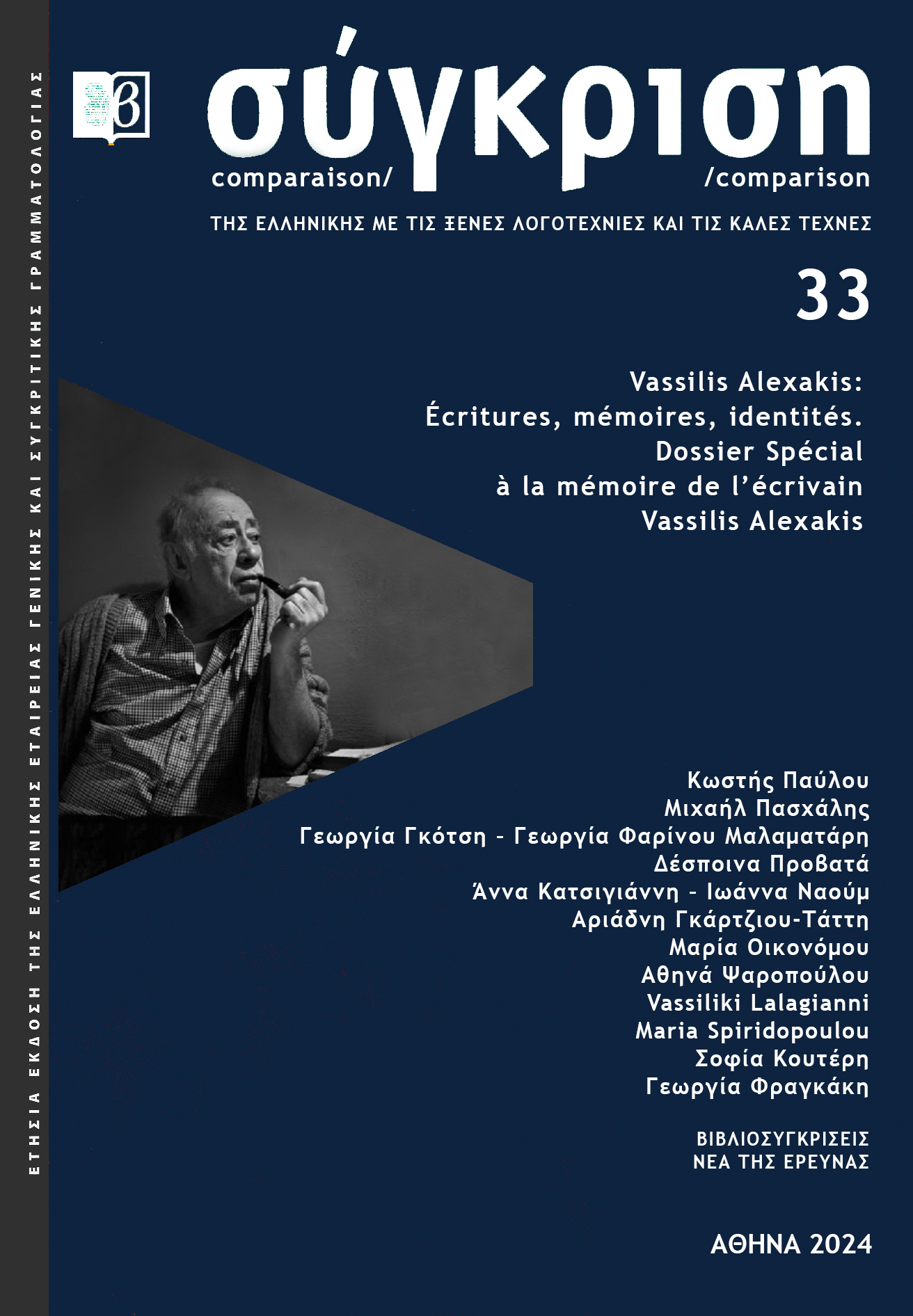Οι μεταφράσεις του Chateaubriand στην Ελλάδα
Abstract
Les traductions de Chateaubriand en Grèce
François-René de Chateaubriand occupe une place particulière dans la mémoire collective de la Grèce moderne. Il est inscrit dans les lettres grecques modernes au double titre de philhellène et d’homme de lettres, aux côtés d’autres écrivains et philhellènes européens tels que Byron et Victor Hugo ou encore Béranger. À sa mort, en juillet 1848, les journaux grecs saluent unanimement un fidèle ami de la Grèce. Mais dans quelle mesure son œuvre littéraire était-elle connue du public grec ? Quelles œuvres étaient traduites et quelle en fut leur réception ? La présente étude tente un premier recensement des traductions grecques de Chateaubriand au XIXe siècle et une périodisation de la présence de son œuvre en Grèce. Si dans un premier temps les lecteurs de Chateaubriand appartiennent à une élite intellectuelle francophone susceptible de pouvoir le lire dans l’original, le cercle des lecteurs s’élargit progressivement grâce notamment à des traductions intégrales mais aussi grâce à des traductions partielles insérées dans les revues littéraires du XIXe siècle.
Article Details
- How to Cite
-
Provata, D. (2025). Οι μεταφράσεις του Chateaubriand στην Ελλάδα. Comparison, (33), 208–225. Retrieved from https://ejournals.epublishing.ekt.gr/index.php/sygkrisi/article/view/38940
- Issue
- No. 33 (2024)
- Section
- Articles

This work is licensed under a Creative Commons Attribution-NonCommercial-ShareAlike 4.0 International License.
Authors who publish with this journal agree to the following terms:
- Authors retain copyright and grant the journal right of first publication with the work simultaneously licensed under a Creative Commons Attribution Non-Commercial License that allows others to share the work with an acknowledgement of the work's authorship and initial publication in this journal.
- Authors are able to enter into separate, additional contractual arrangements for the non-exclusive distribution of the journal's published version of the work (e.g. post it to an institutional repository or publish it in a book), with an acknowledgement of its initial publication in this journal.
- Authors are permitted and encouraged to post their work online (preferably in institutional repositories or on their website) prior to and during the submission process, as it can lead to productive exchanges, as well as earlier and greater citation of published work (See The Effect of Open Access).



